Today, more than ever, we're aware of how we shop. We buy local. We buy organic. We buy sustainable products and frown at the cheap alternatives made in the low-paying factories of China or Bangladesh. We focus, as much as we can, on doing the right thing.
But Sheeva Sairafi takes it one step further than our best intentions, translating her passion for retail and home goods into a do good/feel good endeavor. Each item (whether it's a serape, basket, or tea towel) in her online store, Local + Lejos, is carefully selected for its quality and for the role it plays in the communities that make it.
Sheeva and her team keep things simple and start at the source, via the makers they find around the globe. For Sheeva, the success of Local + Lejos relies on building lasting relationships with global artisans regardless of language barriers or regional divides.
For each project, Local + Lejos reaches out directly to skilled makers (most of them women) in countries such as Rwanda and Guatemala, then collaborates on creating products with a contemporary, yet regional feel—the sort of pieces every woman wants in her living room. And they do it all in a way that guarantees a fair wage to the artisans involved. It's imported luxury made honest and real.
Sheeva's entrepreneurial story begins simply enough: an early job at TJX Companies helped her discover her love for retail but also her distaste for the lack of transparency in many chain companies. A degree from the UCLA's Anderson School of Management gave her the knowledge (and chops) she needed to start her own business and run it according to her own beliefs. Since its creation, Local + Lejos has quickly become a celebrated home décor brand in California and is rapidly drawing national attention. Shopping it just feels right.
Read on as Sheeva talks growing up in a multicultural home, the importance of making mistakes, and her favorite catchphrase: "sustainable employment."
Her Starting Point
Tell us about how and where you grew up. How did your upbringing contribute to who you are today?
I grew up in the suburbs of Boston, Massachusetts. My mom was from the US, but my dad grew up in Iran. Growing up in a multicultural family in a town that didn’t have a ton of diversity definitely shaped my worldview from a young age. Because I was exposed to a variety of cultures throughout my youth, I loved meeting new people and learning new things. We also grew up spending time abroad, which opened my eyes to the circumstances and lack of opportunity that many people in developing nations battle on a daily basis.
Without a doubt, my father has been the biggest influence in my life. When he came to the US at the age of 18, he didn't know anyone and couldn't speak English. He worked odd jobs at gas stations and pizza parlors to get through college, eventually graduating with a degree in engineering. Fast-forward forty years and he’s the VP at a global supply chain manufacturing company. He's a real life example of the American Dream. My work ethic and tenacity are a product of his teachings. Because of him, I’ve learned how to be persistent and not take no for an answer.
In college, you studied business, marketing, and management as both an undergrad and graduate student. What got you interested in retail specifically? Did you always know that was the direction you were headed?
I’ve always had a passion for retail. It was kind of always just something I was good at. My first (and only) career job was at the TJX Companies—the company’s home office happened to be based about 15 minutes from where I grew up. I’d grown up shopping at [TJX] stores and really felt connected with the brand, so it was the perfect first job after I finished my undergraduate degree. Throughout my time there, though, my relationship with the brand shifted. I started to feel a lack of transparency in what I was doing, which I couldn’t stand. I really wanted to do something that had more of a social focus.
Going to business school was extremely helpful given the route I’ve taken, especially with Local + Lejos. Retail encompasses so many of the business aspects that you learn in school (operations, marketing, finance), but when I was in a corporate role as a buyer, I only got a very narrow view of them. Studying business helped round out those skills for me, and while my core strength is in merchandising and product, I’ve been able to apply what I learned from school to help build the other areas of our business.
What were some of the first jobs or internships you had? What did you learn in them that you couldn’t have learned in college courses?
I’ve had a few internships, mainly at start-ups or in small teams within larger organizations. The biggest thing I’ve learned from them revolves around proactiveness and out of the box thinking. College courses give you a general structure or framework for problem solving, but when you are actually on the job, there are still many things you just need to figure out. Working in these small teams without huge processes already in place taught me that my boss isn’t always going to have the answer and sometimes you just need to start somewhere—even if that start is with a Google search.
Did you always know you ultimately wanted to work for yourself and embark on an entrepreneurial venture? What appealed to you about it?
When I decided to go to grad school, I knew it was because I wanted to use it to get the tools I needed to round out my corporate retail skills and have the building blocks necessary to start a business. Throughout my life, I’ve always been really good at self-motivating, which I knew would be key in starting a business. I’ve always loved new business and the idea that you can solve problems by coming up with new ways to do things. In my current work, I love that we can deliver items to customers that they love, while also providing jobs to women in need. It's such a win-win, and I hope more of the world moves towards this social enterprise model.

Her Big Break
What made you decide to start Local + Lejos, and how did you plan accordingly?
I was in my final year of business school (I was in a part-time program where I was working during the day and in classes at night). I had been thinking about the idea for Local + Lejos for years (seriously, years) and didn’t want to finish my MBA at the same place I started. I thought if I wasn’t going to take a risk now, when would I? I was also starting to see more trends in both the social impact and home goods space pop up. It felt like the right time both personally and from a market opportunity perspective.
Throughout my seven years in the corporate world, I was really vigilant about saving. I didn’t necessarily know what I was saving for at first, but I made sure to tuck away what I could. A little trick? Every time I got a raise, I took a small percentage for more “play/life” money, but put the majority directly into savings each week. I found that if I got used to seeing the extra paycheck in my account, it made it harder to save. This way I didn’t even need to think about it. Before I left, I made sure I had at least enough money for my first year. That being said, my spending habits changed dramatically once I no longer was receiving a steady paycheck.
Tell us about “sustainable employment” and how it works. Why is it important to your business and brand, but also to retail in general?
This is my favorite question. Sustainable employment is at the root of our mission at Local + Lejos. Why, you ask? Because that is what really helps impact change for the next generation. Most of the women we work with don’t have access to steady work. As a result, once their children (usually daughters) get old enough to help around the house, or on the farm, they need them to stay home from school. By providing the same artisans work on a consistent basis (versus just running around to different markets and buying a variety of items every season), they are able to use that money to get outside help, allowing their daughters to stay in school.
How did you make your connections with the makers, and how do you keep them involved in the process?
We build our relationships in a variety of ways, but it all starts with on-the-ground research. We approach a new country with an idea of the makers we want to meet, but once you're there you often meet new people that point you in the right direction for what you are looking for. Keeping our artisans involved in the process is a huge priority but is a challenge at times, as most of them don't have access to internet or phones. Luckily, technology is helping to change this. We'll communicate through chat applications or email, although it's not as easy as just picking up the phone to call. We also have on-the-ground partners that help us manage the development process.
What’s the hardest part of running your business? Did you make any mistakes along the way?
At this stage, the hardest part of running our business is time management. As a small team, there is never a day where the to-do list is finished. We need to be really strategic about what our priorities are, and that those priorities are setting us up for the goals we want to hit. It’s a challenge, but learning to say no to opportunities that do not align with our priorities and goals is critical.
Yes, I have made more mistakes than I can count. It's part of the process when building a start-up. But we see every mistake as an opportunity to learn something and change our strategy based on these learnings. While it’s not ideal to make mistakes, coming away from each experience with a takeaway helps make us stronger and smarter as we move forward.
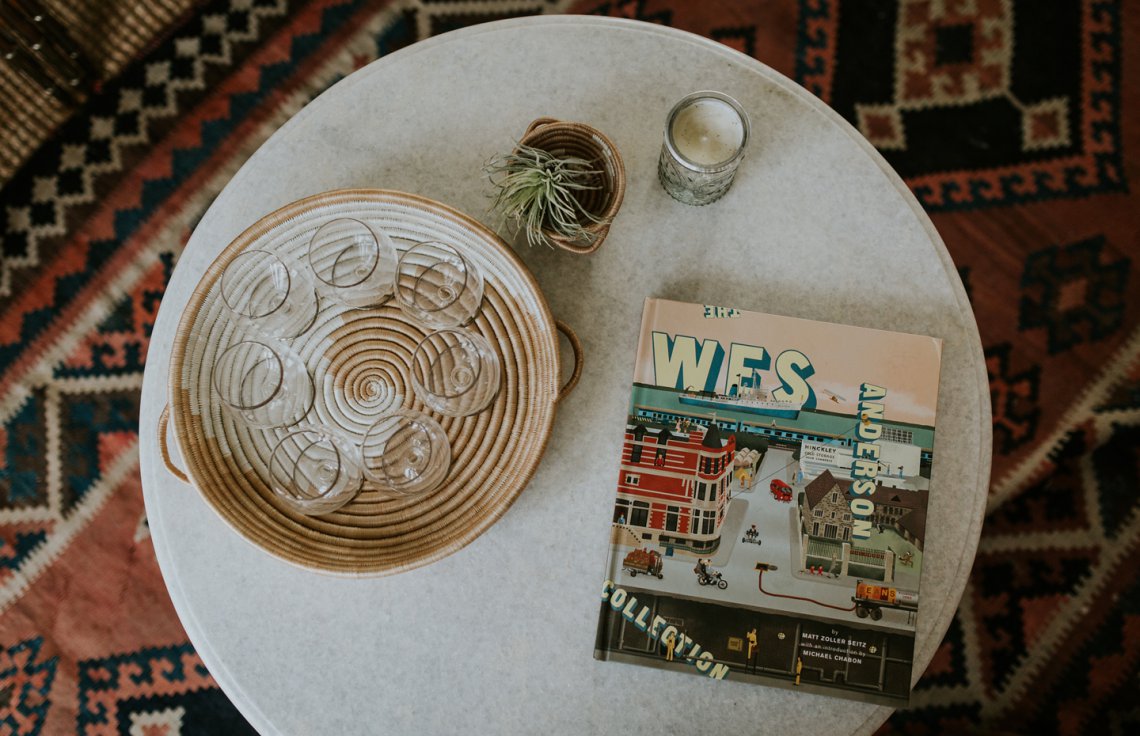
Her Perspective
Did you have any professional mentors along the way? What did they teach you?
My first boss at TJX has very much been a mentor to me. So much so that we still frequently keep in touch even with my departure from the company. The most important thing she taught me was that there's always more than one way to approach a problem, and the first approach does not mean it’s the best. Basically, always challenge the status quo and try to figure out a better way to execute. She also taught me to take risks. I consulted with her a lot before I gave my notice, and it was her support that helped me feel really confident that my decision was the right one.
What’s your best advice for a woman starting out who’s interested in starting her own business?
Decide what you want your path to be, and know that there isn’t a right or wrong answer. Do you want to raise money or bootstrap? Do you want a lifestyle business or an acquisition? There are many questions you need to think about when starting a business. But the most important aspect is identifying what you want in the end, and then making decisions toward that goal without letting what others are doing shape your decisions. It's really easy to get caught up watching other businesses approach it differently, but that doesn’t mean your way isn’t right—the most important bit is that it’s the right route for you.
Most importantly, know that you are going to have to make sacrifices in your life. Your real friends will understand when you need to work instead of play. Its not always the most fun, but if this is what you were born to do, you’ll survive.
What are some of your markers of success? Do you set goals for yourself and your work? What’s one of your biggest successes so far?
I’m very revenue focused right now for two reasons. First, success for us is employing more women with each new collection we produce. Second, in order to raise the capital we need to expand our business, we need to show demand. So in order to adhere to our mission of sustainable work, and bring in necessary capital, we need to be consistently hitting sales targets. One of our biggest successes so far is achieving month over month sales growth since our launch with no marketing spend!
And finally, what do you wake up every day looking forward to? What’s next for your career?
As a startup founder, I would be lying if I said that every day is fun. It's true, there are the ups and there are the downs. But I know that I need to do many things that I might not want to in order to build the business I believe we have the potential of creating. So that makes it easier to swallow some of the bad. My favorite days, the ones I look forward to the most, are the creative ones—art direction, styling, product development, UX/UI, you name it—I’m most inspired by the days I get to create something compelling. As for what’s next? My life and career are so tightly intertwined at this point, all I can think about is creating a global home décor brand that puts some good back into the world.
You May Also Like
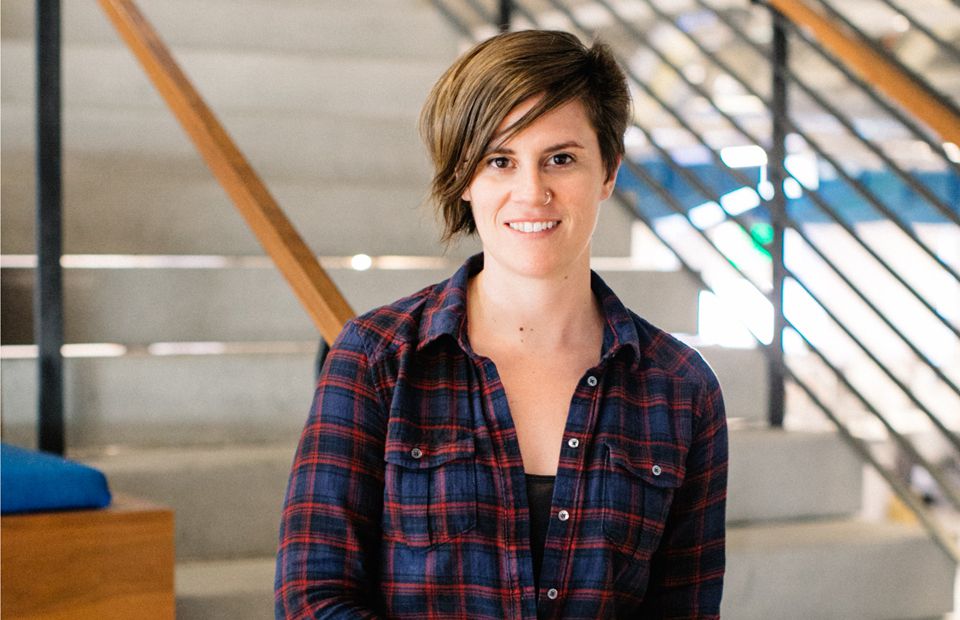
Media
How to Use Positive Reinforcement at Work—and Other Advice from a Pandora PM
"My advice to anyone who wants to get into product management is: check your ego at the door."
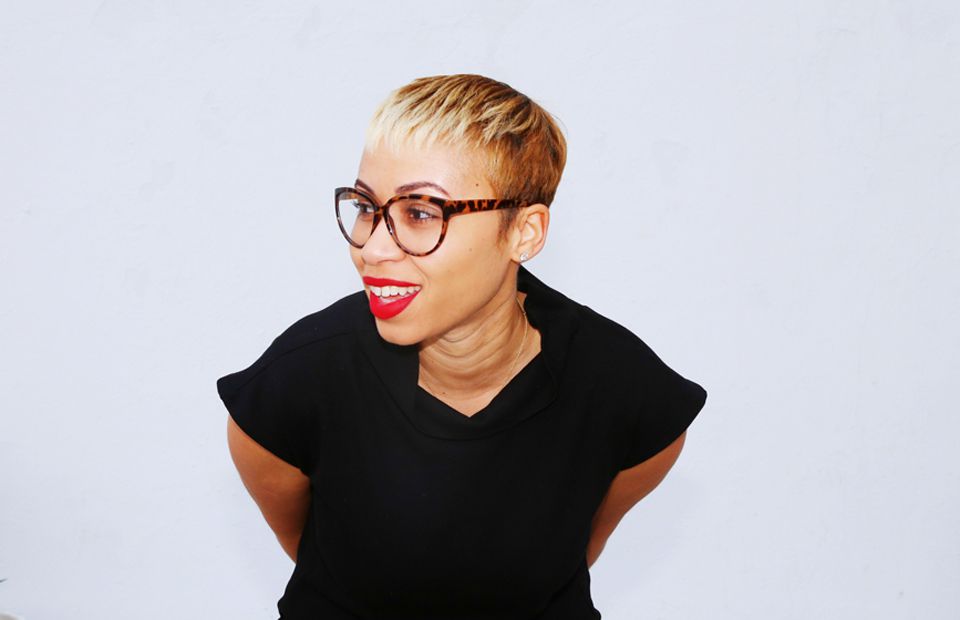
Media, Communications + Public Relations
How to Take Risks, Make a Switch, and Find a Career You Love—From a Woman Who's Done It 4 Times
Making your wildest dreams come true starts with understanding yourself—and Ahyiana Angel can help.
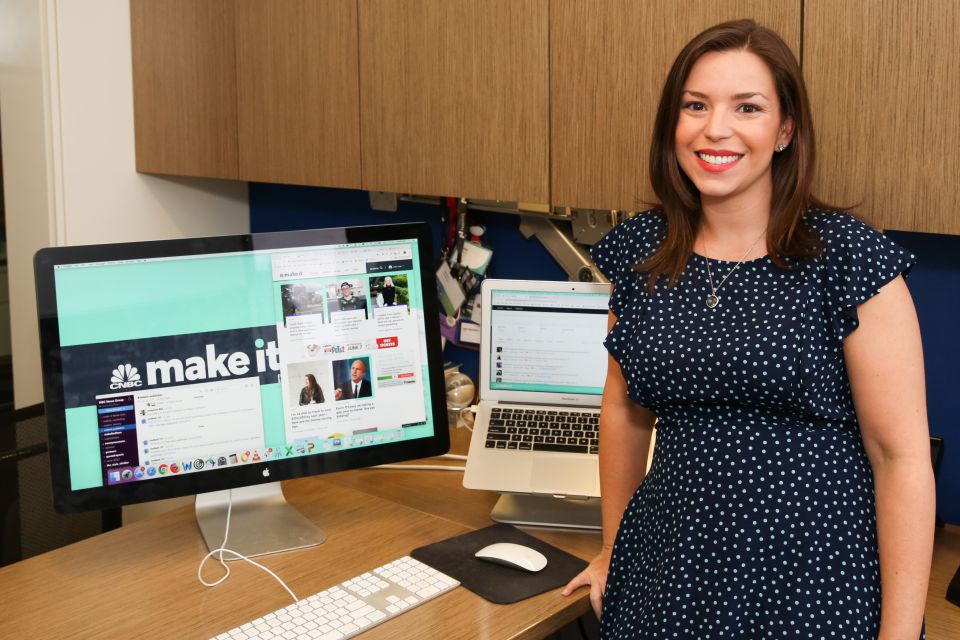
Communications + Public Relations
Creating Content That Empowers Audiences with CNBC's Digital VP and Managing Editor
This week, we interviewed Jenna Goudreau, the VP and managing editor of CNBC Digital. Let's learn how she keeps her powerhouse content creation machine going.
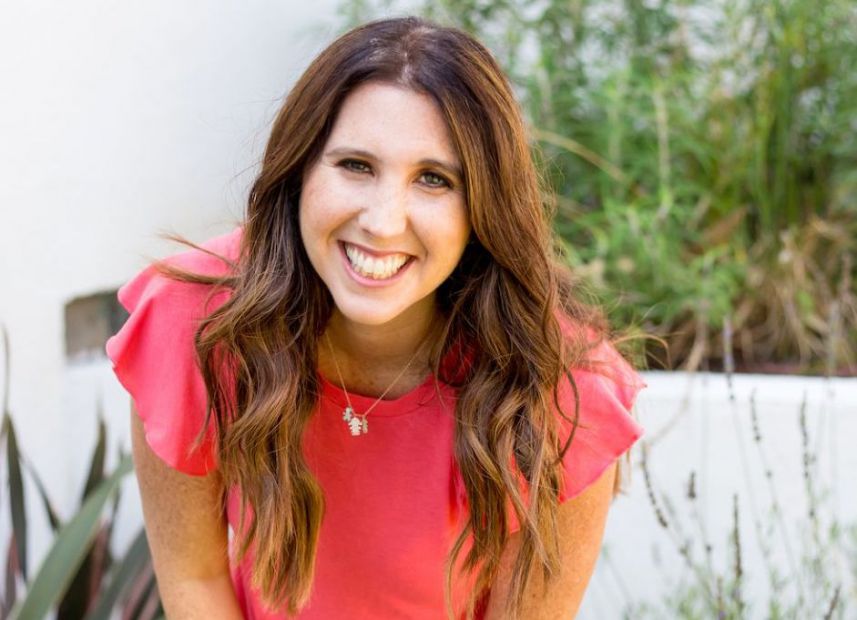
Entertainment
Working Creatively From Home with Cathy Heller
Cathy Heller is a singer, songwriter, entrepreneur, mother—and now, an author. Determined to lift others up to the "happiest versions of themselves," this queen of the hyphenated job title, leads by example. She shared how to build a fulfilling career in a creative field—all while working from home.
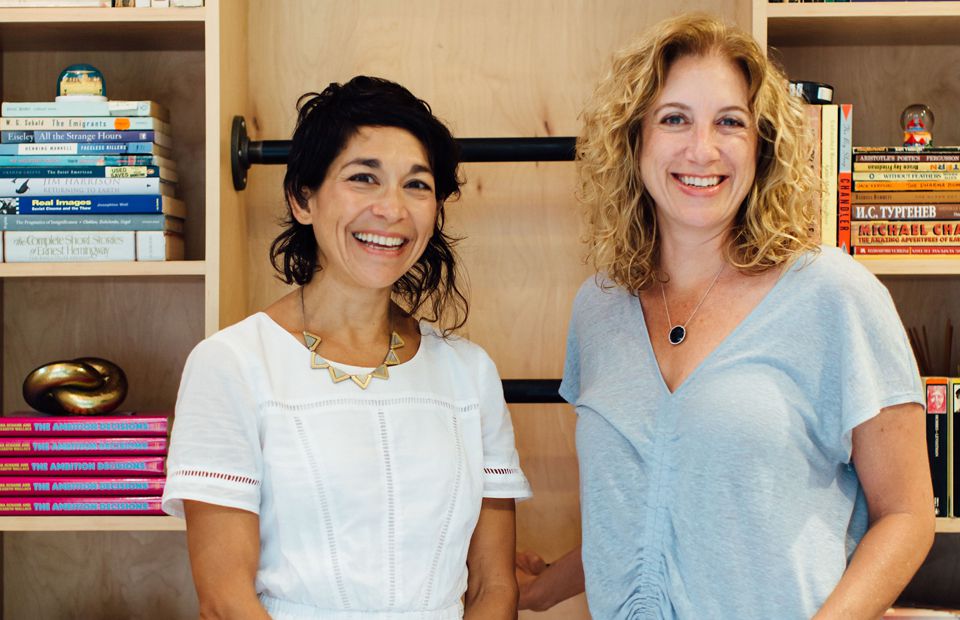
Media
Women, Work, and What It's Like to Write With Your Best Friend—From the Authors of The Ambition Decisions
"We should all give ourselves permission to challenge the things we think can’t be challenged."
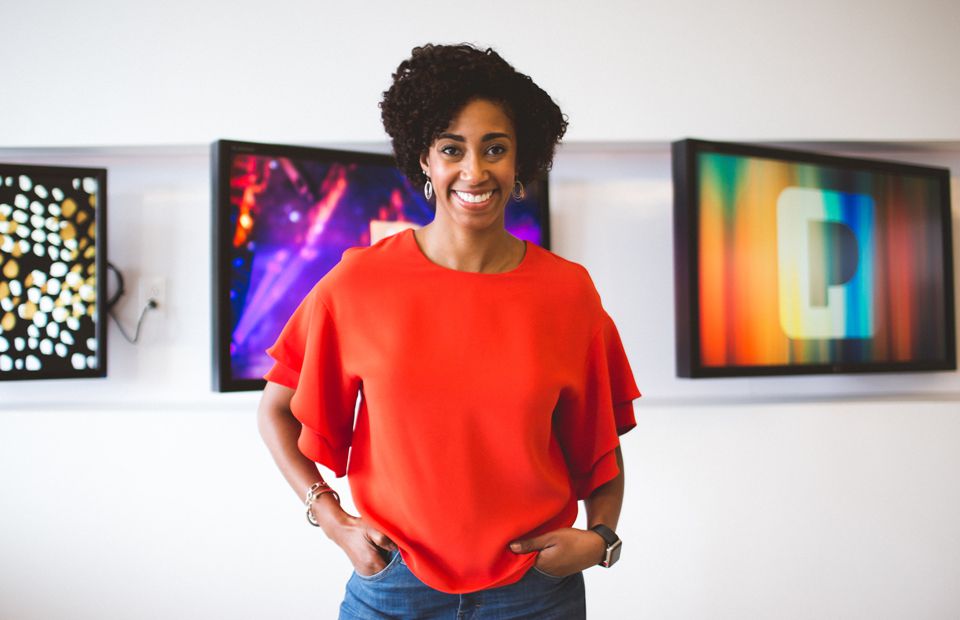
Media
A Director at Pandora on Staying Present, Celebrating Others, and Learning From Failure
"Share your wins, but most importantly, share what your growth areas are, share when you fail, share how you bounced back."
Get the Best Career Advice Delivered To Your Inbox
Join our newsletter to stay in the loop.
